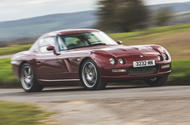When Bristol launched the Fighter, everything was to be of the highest quality
200mph ultra-aerodynamic coupé from a tiny British start-up gets the recognition it deserves
For a company that made some of the most innovative and intelligently designed road cars way back when, it’s sad to think there will be many for whom a Bristol will only ever be seen as something rather crusty and fusty and slightly unfashionable.
The Fighter tried to change that perception. It was the product of a new broom, whose injection of cash gave the tiny firm the wherewithal to develop a brand-new model.
It was a gullwing-doored, two-seat supercar with 200mph-plus performance, to be made at the rate of 20 per year. As ever with Bristol, everything was to be of the highest quality, but function would still rank higher than fashion.
As such, it would have the lowest possible drag coefficient but eschew any notions of downforce, and it would do without the intrusive electronically modulated systems to be found in its most obvious competitors, these being thought a mere substitute for the balance and control that come from proper engineering. It would also be luxuriously trimmed inside and be comfortable enough for high-speed continental touring.

In 2004, it became possible to buy one, but alas, for whatever reasons, in the long run only a very few did.
Why? Well, it has been said before but it looks a lot better in the aluminium and carbon composite than it does in photographs. There are hints of such heart-stopping beauties as the various Alfa Romeo TZs about its overall design, although being ship-shape and Bristol fashion, the Fighter is deliberately taller and narrower than the supercar norm.
It is perhaps, like a lot of us, a little sensitive to camera angles… Whatever it looks like, it all works, because the drag coefficient is an impressive 0.28. It is also delightfully compact and admirably lightweight, too, at under 1600kg.
That means there’s even less for the mighty 525bhp 8.0-litre V10 under its bonnet to fight against, and it’s no wonder claimed performance is of the order of 0-60mph in 4.0sec with a top speed of around 210mph.
Hop aboard and that throbbing and seductive V10 dominates. The manual gearlever is canted over towards the driver and the change itself is remarkably good for something that has to cope with so much (525lb ft) torque. Its driving position is set high but is exceptionally comfortable with excellent visibility and there are enough quirky touches – the aircraft-style instruments in the rooflining, for example, featuring an engine hours display – to let you know you’re not in an Audi.
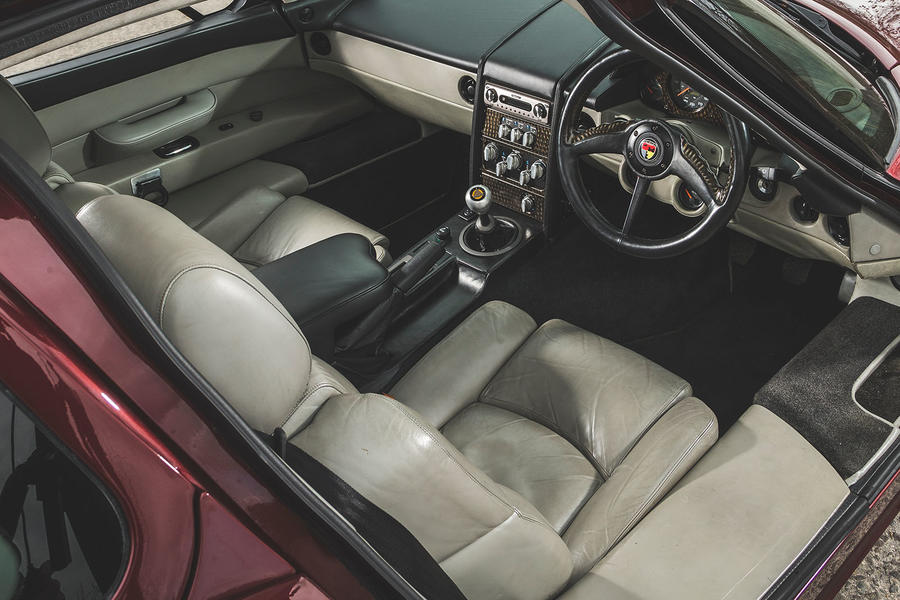
The fit and finish is standard British hand-made; like so much about the Bristol, you either get it, or you don’t. Press on and there’s little in the way of dive or squat.
It feels rigid, carved from the solid. The ride is good and the brakes are strong, but for me, the most impressive thing about the Fighter I drove (they can all be set up differently, and probably are) was the steering, which was well weighted and, at 2.7 turns lock to lock, pleasingly direct.
So, what it is, this Fighter, is a supercar made by Bristol, quick, thoughtful and highly individual, and if it failed to capture the attention of supercar buyers with quite the vigour it should have done, more fool them.
What we said then
24 May 2005: “There’s a familiar, mighty rumble to the engine as it starts. The performance is simply immense. The car is a safe handler, too – benign when cornering hard and long enough in the wheelbase to resist unscheduled tail-out stuff. This old aeroplane company really can build a modern car, and (evidently) one with enough individuality and performance appeal to attract people who just want something entirely different.”
An expert says:
Richard Hackett, SLJ Hackett: “My father bought a Bristol from Tony Crook’s showroom in Hersham when I was a boy and that started the affair for me. I then worked for Bristol Cars for over two decades. The Fighter is an exceptional car. It’s amazingly fast, easy to drive and beautifully made – it handles superbly. I think it’s actually got better looking as it’s got older, too. The good news is that it’s very dependable and most parts are still easy to come by. Prices are definitely on the up, too.”
Buyer beware
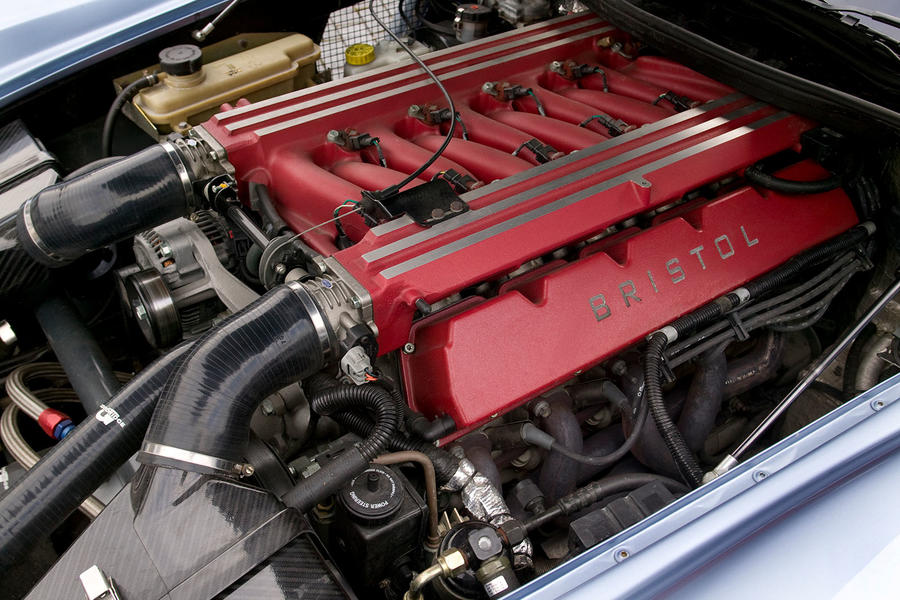
Engine: The mid-front-engined V10 from the Dodge Viper is a clever and reliable unit. It weighs just 528lb, which is remarkable for an engine that produces 525bhp, and can just as easily give a lot more. Indeed, the ram air effect at high speed gives the engine another 25bhp.
Everything in the engine bay has been designed to allow easy access for maintenance, so parts such as the spark plugs and starter motor are all accessible. Reliability reports so far suggest no obvious problems, with good spares supply and easy servicing. Its long gearing in the Fighter gives it just 1500rpm at 70mph.
Body: Among hundreds of clever features, the exhausts run through the sills to keep the underside smooth. There are no spoilers to ruin the airflow, and the Fighter has ground clearance that no rival supercar can match. The Max Boxstrom-designed two-seater has a rigid all-steel box-section frame with an integral front bulkhead, windscreen surround and rollover protection.
It got honeycomb flooring, carbonfibre doors and hatchback, plus aluminium wings, roof and bonnet. The highly stressed suspension parts were all steel. The Fighter is also a usable hatchback, with a full-size spare tyre in the boot.
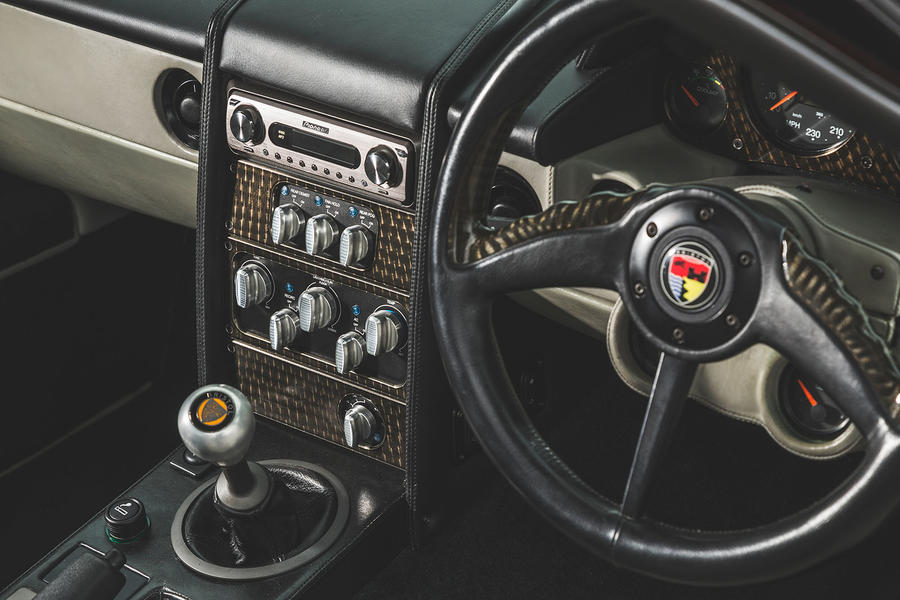
Transmission: from either a six-speed manual or a four-speed automatic transmission, though it’s thought that only one automatic car was made. Bristol fettled the manual gearbox from the Viper for a shorter, sweeter change. All Fighters are rear-wheel drive. No faults have been reported so far.
Steering: The Fighter has an exceptionally tight turning circle, rare in its class, thanks to its front wheels’ ability to turn up to 41deg – not far off that of a London taxi. This is an exceptional figure for a car with such wide front tyres, too.
Also worth knowing
Because of the firm’s legendary secrecy, the exact number of Fighters produced and sold originally is a matter of speculation; there seem to have only ever been nine registered in the UK. Richard Hackett, of Bristol specialists SLJ Hackett, reckons that in total 20 Fighter chassis were made, of which 19 are accounted for.
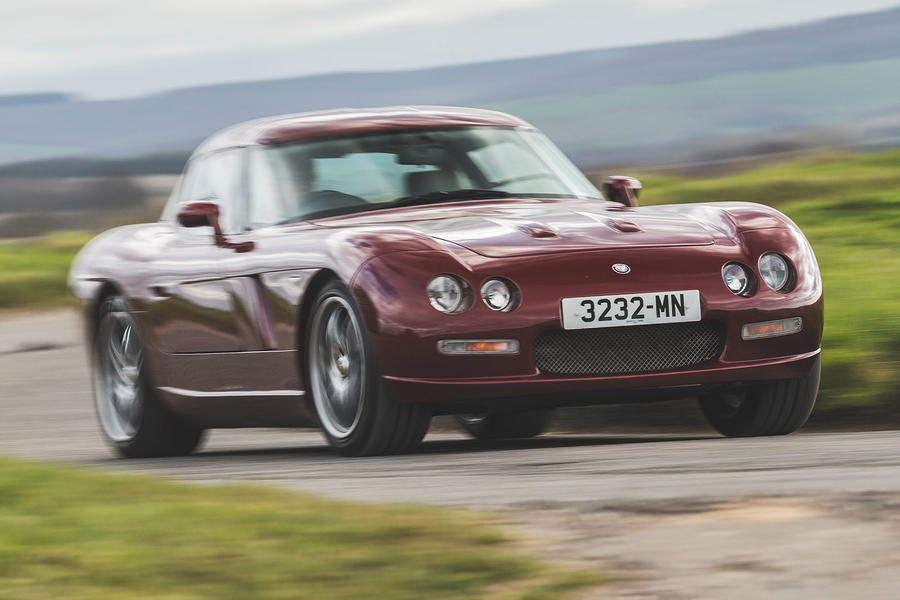
It seems 13 were finished by Bristol. SLJ Hackett recently purchased a selection of certified chassis in various states of completeness from the previous owners’ chattels, and it now has two of them nearly complete and already sold. If you fancy a ‘new’ continuation Fighter, or indeed any other type of Bristol, you had better address yourself to the firm pronto. When the Fighter first went on sale in 2005, the price was £229,000 for the regular 525bhp car or £256,000 for the 628bhp S version.
A Bugatti-rivalling, 1012bhp, twin-turbo Fighter T was initially listed, too, with a top speed of 225mph. It doesn’t look like one has ever been made, but SLJ Hackett has the only Series 2 Fighter constructed by Bristol Cars ready for completion, and that was specifically designed for the twin-turbo engine.
How much to spend
£200,000 and above: Prices are on the cusp of taking off, and you’ll certainly get back what you paid. Fighters start at about £200k. For this, you’ll get a car with up to 40,000 miles, probably sold through the specialist dealer network. Pay upwards of £230k for most, nearer £350k for barely used/continuation examples in mint condition.
One we found
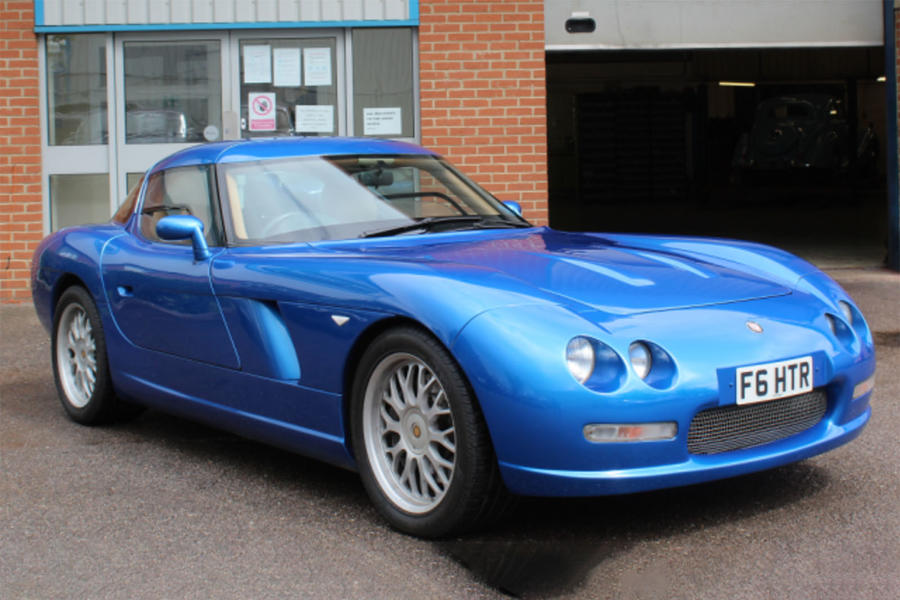
So rare is the Fighter that none are on the market at the time of writing. However, SLJ Hackett sold two last year, including this lovely 2006 example in Electric Blue that was initially one of the firm’s demonstrator cars. Its mileage of 48,000 is probably as high as you will find on a Fighter, despite which it was in perfect condition.
Source: Autocar
